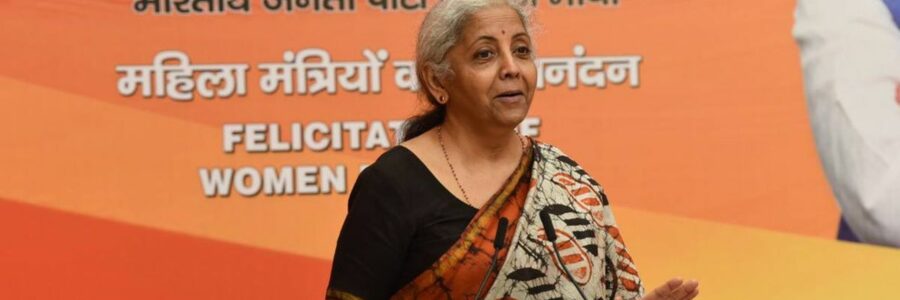
Nirmala Sitharaman: More HITS then MISSES
Nirmala Sitharaman is proving to be a better finance minister than her initial rookie status might have led people to expect, observes T N Ninan.
Nirmala Sitharaman is proving to be a better finance minister than her initial rookie status might have led people to expect.
She started off on the wrong foot, saddled as she was with the unrealistic Budget numbers presented in the 2019 Interim Budget by her predecessor, and by the fudging of the books that hid the real picture.
As a first task, she has done a clean-up act: Expenditure that was off the books has been brought into the Budget, and tax refunds now come with a speed and regularity that would have surprised many taxpayers.
Budgeting has become a more honest exercise.
Ms Sitharaman has also completed the process of de-personalising tax assessments by making them digital and transparent.
Routine tax administration, long a source of harassment and corruption, is thus far smoother than under her illustrious predecessors.
Unfortunately, she has had only partial (therefore inadequate) success with the third big tax issue: Closing out the enormous number of tax disputes through a settlement exercise.
The makeover extends to goods and services tax (GST), which has so far belied the initial promise held out of raising the tax-GDP ratio over and above providing a boost to GDP itself.
By enforcing e-invoicing, linking GST records to Aadhaar, and cross-matching them with income tax filings, she has largely tackled the problems of fake invoicing and tax evasion.
This remains a work in progress, though, because GST collections, while on the upswing after four long years, do not yet show a sustained step jump.
The task will be addressed more fully when the overdue task of rationalising and reducing the number of applicable rates is taken up, along with reversion to the initially-promised revenue-neutral rate.
Fortune now smiles on the minister.
The spurt in tax collections during the April-June quarter, especially in corporation tax, reflects the surge in corporate profitability as large companies have used the pandemic to trim costs, including interest payments.
That personal income tax collections too have improved through the second wave of the pandemic carries its own lesson, since it testifies that the phased and state-wise lockdowns of the last quarter did not have the same destabilising impact on economic activity that the nationwide lockdown did a year earlier.
The result of these trends is that the final government accounts for 2020-2021 showed better numbers than the revised estimates presented at Budget time.
This may repeat itself with revised numbers at the end of the current fiscal year, when compared to the initial Budget estimates presented in February.
These are positive initial trends when the overall fiscal situation remains under stress — in part because the minister has chosen to not exercise all the taxation options open to her.
While the finance minister is the custodian of government finances, her primary tasks are to steer the main economic metrics: Growth, domestic stability (ie prices), and external stability.
The trend in GDP forecasts suggests that recovery this year will be slower than initially assumed, but rapid nonetheless.
The question marks about subsequent growth lie over the horizon.
On the external situation, India is in a comfort zone because of the cushion of substantial foreign exchange reserves and a modest current account deficit.
Domestic economic stability is the worry point, since wholesale price inflation is in double digits and retail price inflation above the range stipulated for monetary policy.
Both have been driven by the global commodity price boom and supply bottlenecks.
Some relief will come soon since global oil prices have dipped, but the official optimism that the price situation will improve by the third quarter comes tinged with wish-fulfilling hope.
This patchy but encouraging picture on tax administration, revenues, and the macro-economic situation, in the middle of a pandemic, will not be complete without pointing to important policy negatives.
One is the consistent under-performance on privatisation; another is the failure to fix the banking mess; and a third is the clear trend towards protectionism, aided now by the proposed removal of tariff exemptions.
Finally, there is misuse of the Enforcement Directorate and income tax sleuths to target the government’s opponents and critics.
Is de-politicisation of these prosecuting arms too much to ask?
Feature Presentation: Aslam Hunani/Rediff.com
Source: Read Full Article